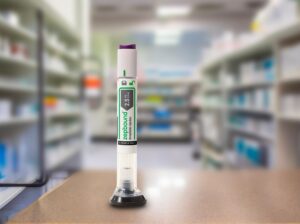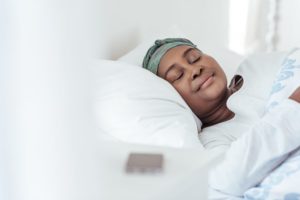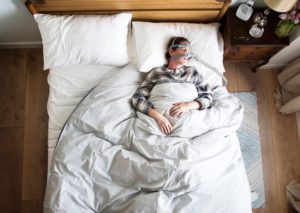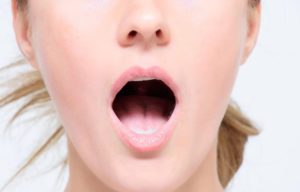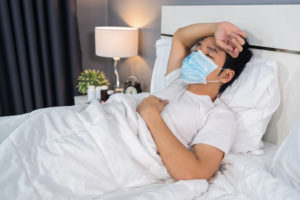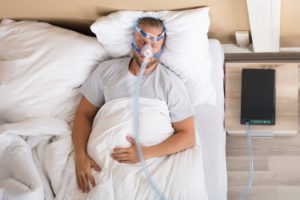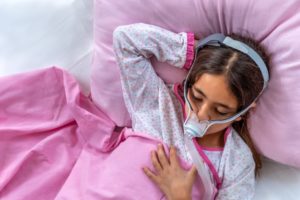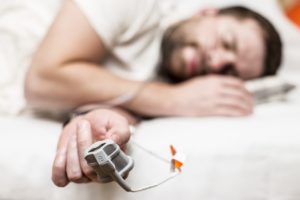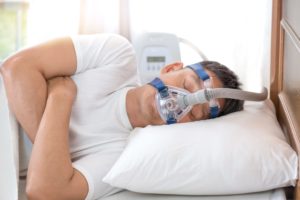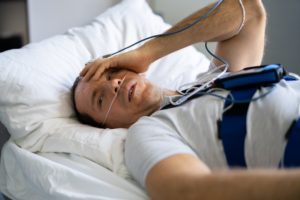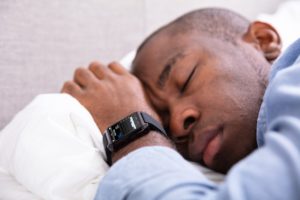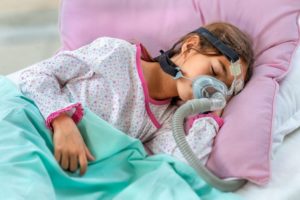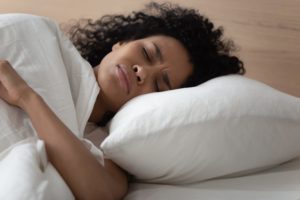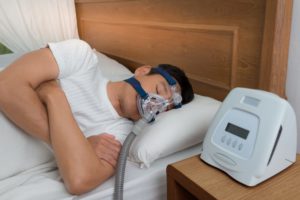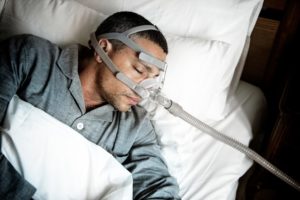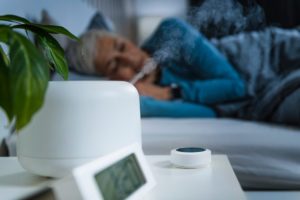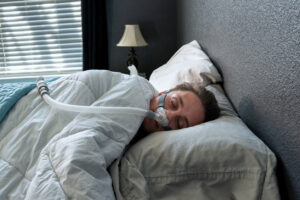When you buy through our links, we may earn a commission. Products or services may be offered by an affiliated entity. Learn more.
How Sleep Apnea Affects Blood Pressure
- Sleep apnea significantly impacts blood pressure, contributing to hypertension.
- Obstructive sleep apnea breathing interruptions cause spikes in blood pressure during sleep.
- Overnight hypertension can persist during the day, increasing the risk of cardiovascular complications.
- Treating sleep apnea can help normalize blood pressure levels and improve overall health.
High blood pressure, also called hypertension, is a common health issue in which the amount of force that pumps blood through blood vessels is higher than normal. People with hypertension often don’t have symptoms but learn they have high blood pressure during routine checks at a doctor’s office.
Sleep apnea is a sleep disorder that causes numerous pauses in breathing during sleep, as well as snoring and gasping for air. Like hypertension, people with sleep apnea frequently don’t know they are experiencing symptoms until a partner expresses their concerns or doctors suggest a sleep study.
It’s important to understand the relationship between hypertension and sleep apnea because these two conditions affect one another. Fortunately, managing hypertension and treating sleep apnea can reduce your risk for harmful health effects.
Is Your Snoring a Health Risk?
Answer three questions to understand if you should be concerned.
The Relationship Between Sleep Apnea and Blood Pressure
There are two types of sleep apnea: obstructive sleep apnea (OSA) and central sleep apnea (CSA). OSA is marked by episodes of airway collapse, which blocks airflow into the lungs during sleep. In CSA, breathing lapses occur because of a lack of communication between the brain and the muscles involved in breathing.
Of the two types of sleep apnea, only OSA is linked to high blood pressure . The prevalence of OSA is estimated to be between 4 and 7% of the general population, but it affects 30 to 40% of people with hypertension. Of people diagnosed with OSA, it is estimated that around half also have high blood pressure.
In healthy individuals, blood pressure naturally lowers by between 10 and 20% at night, a phenomenon that is sometimes referred to as “ blood pressure dipping “. People with severe OSA experience a “nondipping” blood pressure pattern and face an increased risk for cardiovascular issues .
Many patients with OSA also experience a sudden and pronounced elevation of their blood pressure when they wake up in the morning. This “morning surge” is another factor that may increase risk for cardiovascular disease. Moreover, studies show that daytime blood pressure levels also increase with sleep apnea severity.
Can Sleep Apnea Cause Hypertension?
Sleep deprivation strains the heart, and OSA in particular causes an over-activation of the sympathetic nervous system , which may lead to high blood pressure. When activated, the sympathetic nervous system triggers a series of temporary physical reactions, including faster heart rate, higher blood pressure, dilated pupils, and increased metabolism. All of these changes help us respond to stressful events; however, excessive activation of the sympathetic nervous system can lead to chronically elevated blood pressure.
Each time a person with OSA experiences airway collapse and briefly stops breathing during sleep, their sympathetic nervous system becomes activated and blood pressure rapidly spikes when they resume breathing. When a person wakes up after an OSA event, activation of the sympathetic nervous system and blood pressure levels escalate to an even greater degree.
Additionally, when sleep is disrupted by OSA symptoms, the body releases stress hormones called catecholamines into the blood. Catecholamines include dopamine and epinephrine (also called adrenaline). High levels of stress cause high blood pressure and put a daily strain on the cardiovascular system, which may lead to stroke, heart disease, and other conditions.

Obesity and Insulin Resistance
OSA, hypertension, obesity, and insulin resistance share a complex relationship in which all four factors influence and exacerbate one another. Obesity increases a person’s risk of developing both obesity and high blood pressure. Research suggests that when a person has both OSA and excess weight, the two conditions may affect one another in ways that impair cardiovascular health.
People with insulin resistance require higher and higher levels of the hormone insulin to be able to use a type of sugar in the blood called glucose for energy. Over time, insulin resistance can result in uncontrolled glucose levels in the blood and the development of diabetes. Obesity is a known cause of insulin resistance. High blood pressure is yet another risk factor for insulin resistance. Because insulin resistance is an activator of the sympathetic nervous system, it may cause or worsen high blood pressure as well.
Will Sleep Apnea Treatment Affect Blood Pressure?
There are a number of treatment options for OSA. Treatment not only improves sleep quality but could also help manage hypertension. The most common and effective treatment is called continuous positive airway pressure (CPAP).
CPAP treatment involves wearing a facemask attached to a machine that pumps air into the lungs at night. It works by preventing the airway from collapsing, which improves sleep quality in people affected by OSA. Studies investigating the effects of CPAP in patients with hypertension and OSA have shown that treatment with CPAP lowers blood pressure during the day and at night, especially in patients with severe OSA. CPAP also reduces catecholamine levels.
Some patients have a hard time adjusting to the CPAP facemask at night. Consistent, proper use of CPAP is important in order to effectively manage OSA and hypertension. Mouthpieces are one alternative to CPAP and are designed to help maintain an open airway during sleep. Research is needed to determine if mouthpieces also lower blood pressure in people who experience high blood pressure and OSA. Certain surgical procedures are also done to treat OSA in selected patients.
Losing weight either through diet and lifestyle changes or through weight-loss surgery is another approach to managing OSA that may also lower blood pressure .
Should I Talk To My Doctor About Sleep Apnea?
If you have high blood pressure and are concerned about whether you might also have sleep apnea, speak with a doctor. Diagnosis is the first step to accessing effective treatments for OSA that may improve your sleep and blood pressure. Consider whether any of the following symptoms apply to you:
- Daytime sleepiness
- Difficulty with attention and memory
- Headaches in the morning
- Dry mouth when waking up
- Irritability, anxiety, or depression
Sleep apnea is often not recognized by the affected individual. In many cases, a bed partner notices nighttime symptoms of OSA, which prompts a visit to the doctor. If you share a bedroom or home with someone else, ask if they have noticed you exhibiting any of these signs while you are sleeping:
- Loud snoring
- Choking or gasping during sleep
- Pauses in breathing during sleep
Experiencing one or more of these symptoms does not necessarily mean you have sleep apnea, but it is a good reason to bring up sleep with your doctor.

Still have questions? Ask our community!
Join our Sleep Care Community — a trusted hub of sleep health professionals, product specialists, and people just like you. Whether you need expert sleep advice for your insomnia or you’re searching for the perfect mattress, we’ve got you covered. Get personalized guidance from the experts who know sleep best.
References
13 Sources
-
Noda, A., Miyata, S., & Yasuda, Y. (2013). Therapeutic strategies for sleep apnea in hypertension and heart failure. Pulmonary medicine, 2013, 814169.
https://pubmed.ncbi.nlm.nih.gov/23509623/ -
Surani S. R. (2014). Diabetes, sleep apnea, obesity and cardiovascular disease: Why not address them together?. World Journal of Diabetes, 5(3), 381–384.
https://pubmed.ncbi.nlm.nih.gov/24936259/ -
Bloomfield, D., & Park, A. (2015). Night time blood pressure dip. World Journal of Cardiology, 7(7), 373–376.
https://pubmed.ncbi.nlm.nih.gov/26225196/ -
Phillips, C. L., & O’Driscoll, D. M. (2013). Hypertension and obstructive sleep apnea. Nature and Science of Sleep, 5, 43–52.
https://pubmed.ncbi.nlm.nih.gov/23750107/ -
Kario K. (2010). Morning surge in blood pressure and cardiovascular risk: Evidence and perspectives. Hypertension (Dallas, Tex. : 1979), 56(5), 765–773.
https://pubmed.ncbi.nlm.nih.gov/20937968/ -
Javaheri, S., Barbe, F., Campos-Rodriguez, F., Dempsey, J. A., Khayat, R., & Javaheri, S. (2017). Sleep apnea: Types, mechanisms, and clinical cardiovascular consequences. Journal of the American College of Cardiology, 69(7), 841–858.
https://pubmed.ncbi.nlm.nih.gov/28209226/ -
LeBouef, T., Yaker, Z., & Whited, L. (2020). Physiology, autonomic nervous system. StatPearls.
https://pubmed.ncbi.nlm.nih.gov/30860751/ -
Kohler, M., & Stradling, J. R. (2013). OSA and hypertension: do we know all the answers?. Chest, 144(5), 1433–1435
https://pubmed.ncbi.nlm.nih.gov/24189850/ -
NIH National Cancer Institute. (n.d.). NCI Dictionary of Cancer Terms: Catecholamine. National Cancer Institute.
https://www.cancer.gov/publications/dictionaries/cancer-terms/def/catecholamine -
Drager, L. F., Togeiro, S. M., Polotsky, V. Y., & Lorenzi-Filho, G. (2013). Obstructive sleep apnea: A cardiometabolic risk in obesity and the metabolic syndrome. Journal of the American College of Cardiology, 62(7), 569–576
https://pubmed.ncbi.nlm.nih.gov/23770180/ -
NIH National Institute of Diabetes and Digestive and Kidney Diseases. (2018, May 01). Insulin Resistance & Prediabetes. National Institute of Diabetes and Digestive and Kidney Diseases.
https://www.niddk.nih.gov/health-information/diabetes/overview/what-is-diabetes/prediabetes-insulin-resistance -
Konecny, T., Kara, T., & Somers, V. K. (2014). Obstructive sleep apnea and hypertension: an update. Hypertension (Dallas, Tex. : 1979), 63(2), 203–209.
https://pubmed.ncbi.nlm.nih.gov/24379177/ -
Harsha, D. W., & Bray, G. A. (2008). Weight loss and blood pressure control (Pro). Hypertension (Dallas, Tex. : 1979), 51(6), 1420–1425.
https://pubmed.ncbi.nlm.nih.gov/18474829/



